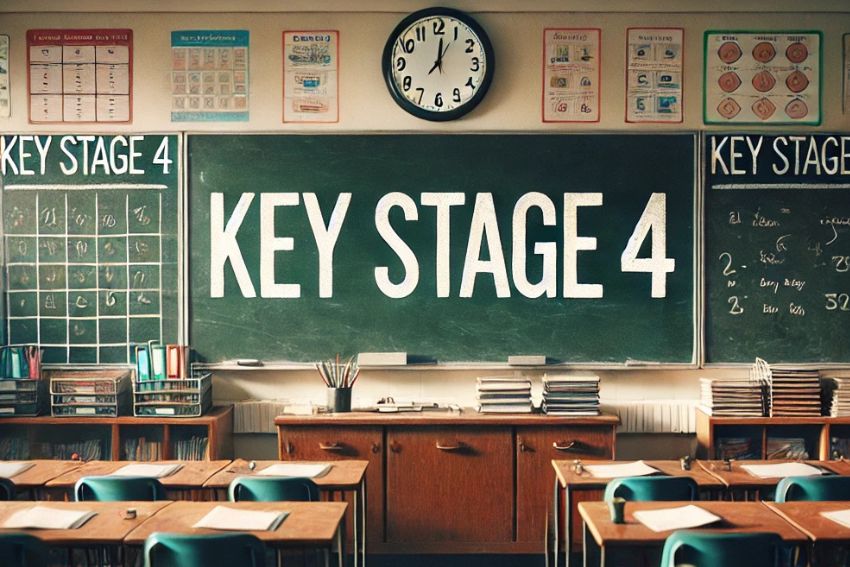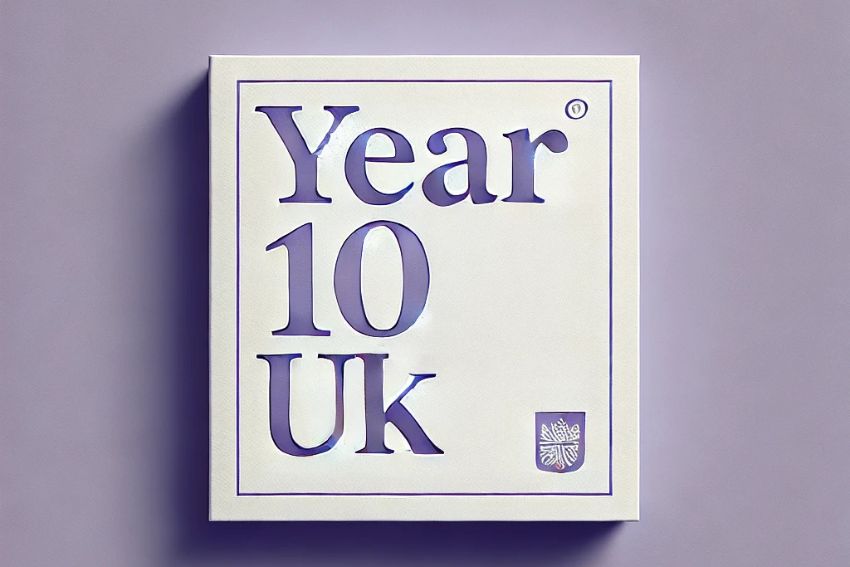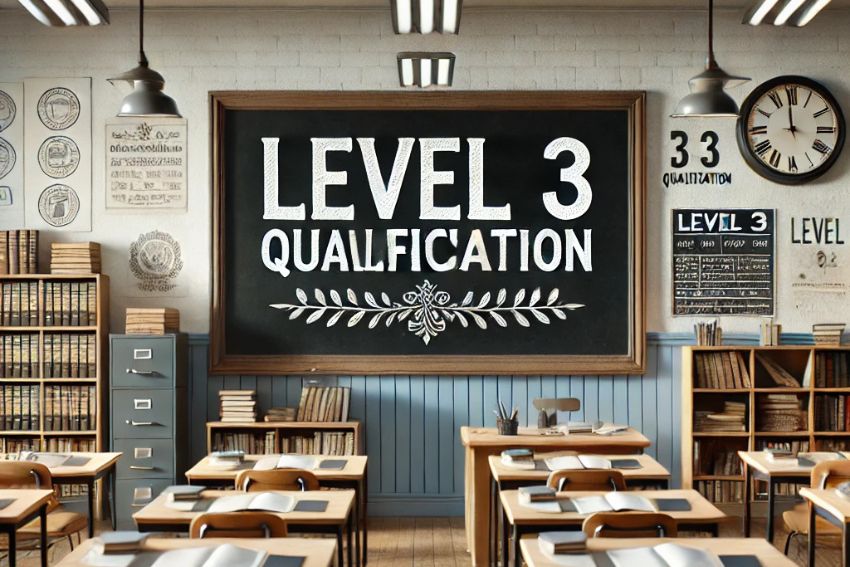What Is key stage 4 and what you need to know about it? IF you are a student or a parent who has these questions, you are in the right place. Key Stage 4 (KS4) is a crucial stage in the UK education system. It is part of the National Curriculum, which sets out the subjects and content to be taught at different stages of education.
Understanding KS4 is important for both students and parents, as it marks the beginning of GCSEs and other essential qualifications. This blog aims to provide a clear guide about what KS4 involves and how it helps students prepare for further studies or careers. So, keep reading! And find out everything you need to know about KS4.
What is Key Stage 4?

Key Stage 4 (KS4) is the stage of education for students in the UK aged 14 to 16. During this stage, students focus on more specialized subjects in preparation for important exams, including GCSEs.
What Age Is Key Stage 4?
KS4 applies to students aged 14 to 16. Typically during Year 10 and Year 11.
KS4 is a vital part of the National Curriculum in the UK, guiding students through a structured education system. It focuses on core subjects like Maths, English, and Science, alongside optional subjects chosen by the students.
KS4 lasts for two years, beginning in Year 10 and ending at the conclusion of Year 11, when students take their final exams.
The main purpose of KS4 is to prepare students for GCSEs, vocational qualifications, or other forms of post-16 education. This stage is critical for students as it lays the foundation for further education and career opportunities.
What Is Key Stage 4 ‘s Core Subjects?
In Key Stage 4, students focus on a combination of core subjects that are mandatory for all students. These subjects are essential for their academic development and are typically assessed through GCSEs or equivalent qualifications.
KS4 Core Subjects
| Core Subject | Description | Assessment Method |
| English Language | Focuses on improving students' understanding, analysis, and production of written and spoken texts. | GCSE exam: Written exams assessing comprehension, writing, and speaking skills. |
| English Literature | Explores classic and contemporary literature, enabling students to understand different genres, authors, and historical contexts. | GCSE exam: Written exams assessing analysis of literary texts. |
| Mathematics | Develops key mathematical skills, including algebra, geometry, trigonometry, and statistics. Higher-level skills include calculus and advanced algebra. | GCSE exam: Written exams covering problem-solving, reasoning, and applied mathematics. |
| Science | Students choose between Combined Science (2 GCSEs) or Triple Science (3 GCSEs). Covers Biology, Chemistry, and Physics. | GCSE exam: Written exams and practical assessments. Combined Science is a single course, while Triple Science involves three separate courses. |
| Religious Education (RE) | Encourages reflection on beliefs, cultures, and moral questions. | Assessments through written exams or coursework, depending on the school. |
Together, these core subjects provide a broad and balanced education that prepares students for further study, work, or other future opportunities.
What Is Key Stage 4 s Foundation Subjects?
here is a list of foundation subjects of key stage 4. Those subjects are as essential as core ones.
KS4 Foundation Subjects
| Foundation Subject | Description | Assessment Method |
| Computing | Focuses on developing an understanding of computer systems, programming, data handling, and problem-solving using technology. It also covers topics like networks and security. | GCSE exam: Written exams and practical assessments on programming and systems. |
| Physical Education (PE) | Develops practical skills in a variety of sports, promotes physical fitness, and educates students on the importance of health, exercise, and well-being. | Non-examined: Typically assessed through practical activities and coursework. |
| Citizenship | Encourages students to think critically about their rights and responsibilities as citizens, covering topics like politics, law, global issues, and community involvement. | GCSE exam: Written exam focusing on key topics such as democracy, human rights, and legal systems. |
Other Subjects For KS4
While studying on key stage 4, schools must offer to students at least one subject from this areas:
Other Subjects For KS4
| Foundation Subject | Description | Assessment Method |
| arts | Encompasses a range of creative subjects including Art, Drama, and Music. Students explore creativity through drawing, painting, performance, or music composition. | GCSE exam: Practical work, written exams, and coursework. |
| Design and Technology | Focuses on designing and making products, covering areas like materials, technology, and engineering. Students learn to create functional, innovative products. | GCSE exam: Written exams, practical design tasks, and coursework. |
| Humanities | Includes subjects like Geography, History, and Religious Studies. Students explore the world around them, understanding historical events, social structures, and cultures. | GCSE exam: Written exams, with some coursework in specific subjects like History. |
| Modern Foreign Languages | Focuses on learning languages such as French, Spanish, or German. Students develop listening, speaking, reading, and writing skills in a second language. | GCSE exam: Listening, speaking, reading, and writing assessments. |
Students can select subjects based on their interests, career goals, and future study plans. First, they should consider what subjects they enjoy and excel in. If a student loves science, for example, they may choose Biology, Chemistry, or Physics. These subjects can lead to careers in healthcare or research.
Next, students should think about their career ambitions. For those interested in engineering, Design and Technology or Mathematics may be a good fit. If a student wants to work in business, Business Studies or Economics would be useful choices.
Finally, students should consider their future study plans. If they plan to pursue A-levels or university, choosing Modern Foreign Languages or Humanities can open up more opportunities. By aligning subjects with their interests and career plans, students can make informed decisions for their future.
Lesson Allocation For Year 10 and Year 11 KS4
| Subject | Year 10 | Year 11 |
| English Language | 4 lessons/week | 4 lessons/week |
| English Literature | 2-3 lessons/week | 2-3 lessons/week |
| Mathematics | 4 lessons/week | 4 lessons/week |
| Science (Combined or Triple) | 4-6 lessons/week | 4-6 lessons/week |
| Physical Education (PE) | 2 lessons/week | 2 lessons/week |
| Citizenship | 1 lesson/week | 1 lesson/week |
| Modern Foreign Languages | 3 lessons/week | 3 lessons/week |
| Humanities (Geography/History) | 3 lessons/week | 3 lessons/week |
| Design and Technology | 2-3 lessons/week | 2-3 lessons/week |
| Arts (Music, Drama, Art) | 2 lessons/week | 2 lessons/week |
| Computer Science | 2 lessons/week | 2 lessons/week |
| Business Studies | 2 lessons/week | 2 lessons/week |
| Other Vocational Subjects | 2-3 lessons/week | 2-3 lessons/week |
The Importance of GCSEs in Key Stage 4
GCSEs (General Certificate of Secondary Education) are the main form of assessment in Key Stage 4. Typically, students take their GCSE exams at the end of Year 11. These 11 plus exams are crucial because they determine the next steps in a student’s education or career. In particular, GCSE results play a significant role in university admissions, apprenticeship applications, and employment opportunities. Therefore, achieving strong GCSE grades is essential for progression to higher education or gaining access to certain job sectors.
GCSE Examinations:
- GCSEs are the main form of assessment in Key Stage 4.
- Students typically take their GCSE exams at the end of Year 11.
- GCSEs are essential for further study or employment.
- The results help determine the next steps for university applications, apprenticeships, or jobs.
Assessment Methods
GCSEs are primarily assessed through final exams. These exams test the knowledge and understanding that students have gained throughout the two years of study. For some subjects, there is also a component of coursework or controlled assessments. These allow students to demonstrate their skills and knowledge in practical or research-based tasks. The combination of exams and coursework offers a balanced way to assess a student’s overall understanding of the subject. GCSE results significantly impact a student’s future, influencing their choices for Post-16 education or the path they take in their career journey.
What Is Key Stage 4 Assessment Methods:
- GCSEs are mainly assessed through final exams.
- Some subjects also have coursework or controlled assessments.
- The combination of exams and coursework ensures a full assessment of a student’s knowledge.
- GCSE results are very important for Post-16 education or future career opportunities.
What Is Key Stage 4 Curriculum?

National Curriculum Requirements
The National Curriculum for Key Stage 4 ensures that students are taught a broad range of subjects. This includes both core subjects and foundation subjects. Core subjects, such as English, Mathematics, Science, and Physical Education, are compulsory for all students. Schools are required to cover these subjects to ensure that students develop essential skills and knowledge.
In addition to the core subjects, students can choose from a variety of foundation subjects like Geography, History, Modern Foreign Languages, and Design and Technology. This flexibility allows students to explore areas of interest and strengths, helping them to build a well-rounded education.
Preparation for Post-16 Education
Key Stage 4 is designed to prepare students for Post-16 education (Key Stage 5). After completing KS4, students can choose to pursue A-Levels, vocational qualifications, or apprenticeships. The subjects studied in KS4 provide the foundation needed for these further educational pathways. For example, students who excel in Science may go on to study A-Level Biology or Chemistry, while those interested in hands-on careers might opt for vocational courses or apprenticeships in fields like engineering or healthcare.
Ultimately, the curriculum for Key Stage 4 sets students up for the next stage in their educational journey, whether that’s further academic study, vocational training, or entering the workforce.
Progression and Career Pathways After Key Stage 4
Further Education: After completing Key Stage 4, students have several options for further education. They can continue their studies at Sixth Form or a college, where they can choose to study A-Levels, BTECs, or other qualifications. These courses help prepare students for university or specific career paths.
Apprenticeships and Vocational Routes:
Apprenticeships are becoming a popular choice. They offer practical, hands-on learning while earning a wage. Students can gain valuable skills in industries like construction, engineering, healthcare, and many others. Vocational qualifications provide a direct route into these fields, allowing students to start their careers sooner.
Post-16 Choices:
It’s important to make informed decisions after Key Stage 4. Students should consider their interests, strengths, and future aspirations when choosing a path. Whether it’s further education or entering a vocational field, each option has its own benefits and opportunities for growth.
Conclusion
In conclusion, Key Stage 4 is a crucial stage in a student’s education. It is where they develop important skills and knowledge that will shape their future. Understanding what is Key Stage 4 and what it involves helps students make informed decisions about their subject choices and career pathways.
The subjects studied during this time provide a strong foundation for further education or work. With the right support, students can excel in their GCSEs.
Also, Online GCSE tutors can be a valuable resource. They provide personalized help, making complex topics easier to understand. This support ensures students are well-prepared for their exams and the future. So find the best online tutors and prepare properly for your KS4. We hope our blog was informative and helpful for you. Good luck!
FAQ’s For KS4
What is Key Stage 4 IGCSE?
Key Stage 4 IGCSE refers to the stage in education where students study for the International General Certificate of Secondary Education (IGCSE) qualifications. This stage typically covers Years 10 and 11 (ages 14–16) and prepares students for exams in core and optional subjects. The IGCSE is internationally recognized and is equivalent to the UK GCSE qualification.
What year is Key Stage 4?
Key Stage 4 covers Years 10 and 11, which typically involve students aged 14 to 16. It is a crucial phase in the education system where students focus on their GCSEs or equivalent qualifications.
What happens if my child doesn’t do well in GCSEs?
If your child doesn’t do well in their GCSEs, there are still options available. They may be able to retake their exams or pursue alternative qualifications such as vocational courses, apprenticeships, or A-levels. It’s important to talk to your child about their options and support them in finding a pathway that suits their interests and strengths.








